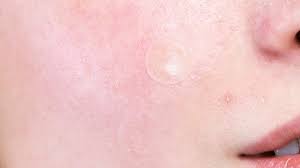Introduction
Retinol is often hailed as the gold standard in anti-aging skincare. It boosts cell turnover, smooths wrinkles, and fades dark spots. But for many people—especially those with sensitive skin—retinol comes with unwelcome side effects: redness, peeling, dryness, and irritation. The good news? You don’t have to give up on anti-aging benefits. Today’s skincare science offers gentle retinol alternatives that deliver visible results without the harshness.
Why Look for Retinol Alternatives?
-
Sensitive skin often struggles to tolerate retinol.
-
Pregnant or breastfeeding women are advised to avoid retinoids.
-
Overuse can lead to barrier damage and excessive dryness.
-
Some prefer plant-based or halal-friendly actives as a safer option.
This is where retinol alternatives step in—designed to support youthful, radiant skin without irritation.
The Best Retinol Alternatives for Anti-Aging
1. Bakuchiol
-
Derived from the babchi plant.
-
Clinically shown to reduce wrinkles and pigmentation.
-
Much gentler than retinol, safe for sensitive and darker skin tones.
2. Novoretin™
-
A plant-based biotech active that mimics retinol’s effects.
-
Stimulates collagen production and smooths fine lines.
-
Non-irritating, making it ideal for long-term daily use.
3. Peptides
-
Short chains of amino acids that signal your skin to make more collagen and elastin.
-
Support firmness and elasticity without causing peeling or dryness.
4. Niacinamide (Vitamin B3)
-
Brightens uneven tone, strengthens the skin barrier, and improves elasticity.
-
Works well in combination with other anti-aging actives.
5. Vitamin C (Ascorbic Acid & Derivatives)
-
Potent antioxidant that fights free radicals and stimulates collagen.
-
Also helps fade pigmentation and adds glow.
6. Polyhydroxy Acids (PHAs)
-
Gentle exfoliants that smooth skin texture and improve radiance.
-
Hydrating and far less irritating than traditional AHAs or retinol.
7. Plant Stem Cell Extracts (e.g., Alpine Rose, Echinacea)
-
Defend against oxidative stress and help maintain youthful skin function.
How to Use Retinol Alternatives in Your Routine
Morning
-
Cleanser
-
Antioxidant serum (Vitamin C, peptides, or niacinamide)
-
Moisturizer
-
Broad-spectrum sunscreen
Evening
-
Cleanser
-
Serum with bakuchiol, Novoretin™, or peptides
-
Hydrating moisturizer (with ceramides or squalane)
Tip: Retinol alternatives can often be used daily, even on sensitive skin, without the adjustment period that retinoids require.
Are Retinol Alternatives as Effective?
While nothing fully replaces retinoids in terms of clinical potency, many retinol alternatives show comparable results over longer periods of use—with far better tolerance. For people who can’t use retinol, these actives are the best way to achieve smoother, younger-looking skin safely.
Key Takeaway
You don’t need to endure irritation to enjoy anti-aging benefits. Retinol alternatives like bakuchiol, Novoretin™, peptides, and niacinamide offer a gentler path to youthful, radiant skin. For sensitive, halal-conscious, or retinol-intolerant users, these ingredients are not just alternatives—they’re smarter, safer solutions.
At Purelab Care, we design formulations that blend cutting-edge actives with halal-certified integrity, ensuring your skin receives both effectiveness and care.



